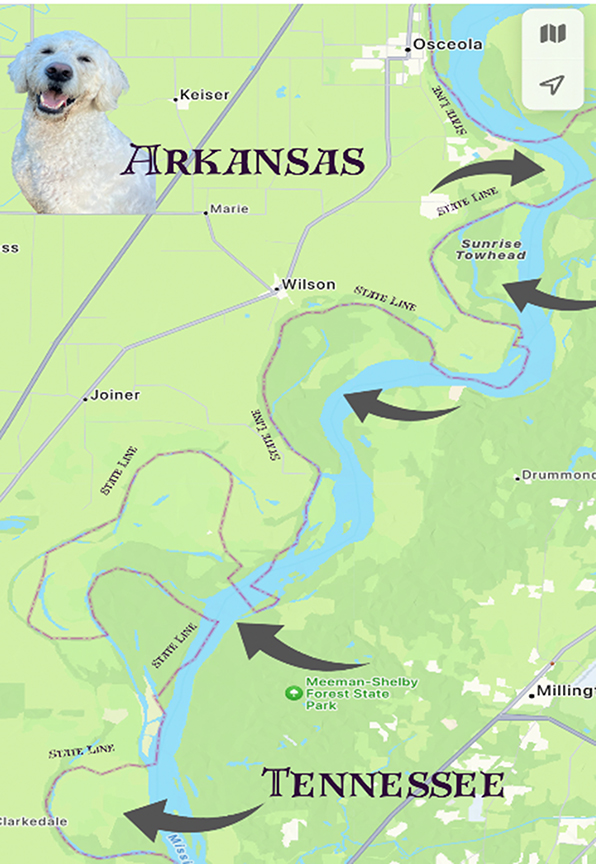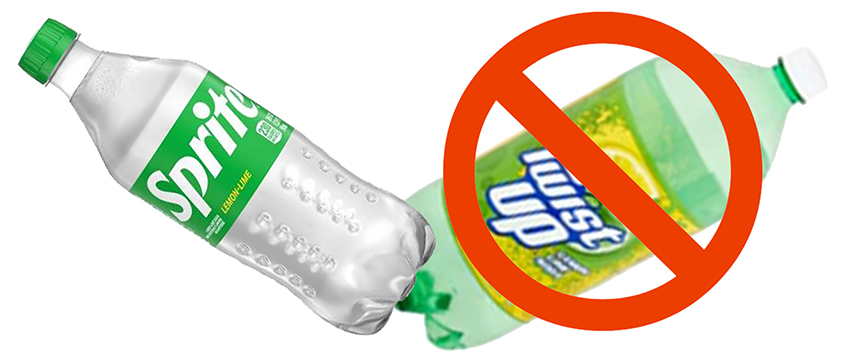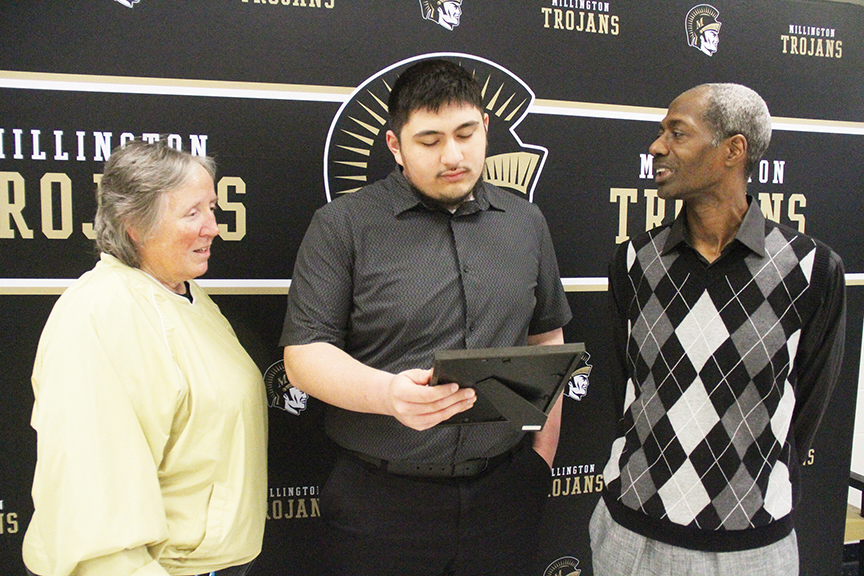By Thomas Sellers Jr.

Daniel Webster
Oh yeah 2020 is an election year. And early voting just started in the Memphis area.
With numerous local elections on the line, most people will endure the yo-yo weather, traffic and that hidden monster named COVID-19 to hit the polls to vote for president. The top job in the United States of America is on the line with two main candidates President Donald J. Trump and former Vice President of the U.S. Joe Biden.
Back in 2016, Trump pulled off the upset and won the Electoral College. He is currently our 45th president. Since George Washington, historic names have been added to the prestigious list John F. Kennedy, Ronald Reagan, Teddy Roosevelt, Abraham Lincoln, Thomas Jefferson and even Richard Nixon. Not all presidential history is positive.
With so much history for this country since 1776, several men have outside of the Oval Office played a part in the development of this nation. It takes more than 45 men to shape the United States and create our three forms of government.
Some of those individuals might even be mistaken for being a president at one point and time. I’m about to rank via The Best Sellers’ List the top 10 men who people think were Commander and Chief of the United States.
Here are a few honorable mentions: George Clinton, James G. Blaine, William Seward, Colin Powell, Robert Taft, John Sherman, John Jay, Arthur Vandenberg, Charles Evans Hughes, Robert La Follette, Thomas Hart Benton, John C. Calhoun, Salmon P. Chase, Ted Kennedy, Earl Warren, Samuel J. Tilden, Gary Hart, Jack Kemp, Mario Cuomo, Al Gore, Robert Wagner, John Hancock, Bob Dole, Newt Ginrich and Nelson Rockefeller.
- Daniel Webster
Daniel Webster was a U.S. Representative for New Hampshire. Then he made his name historically by being a Senator for Massachusetts.
Webster’s interests focused on the Deep South and New England. Regionally, he was respected and his name carried a lot of weight. He won his first election to the U.S. House of Representatives for New Hampshire as a Federalist in 1812. Webster opposed the War of 1812 and supported the interests of mercantile New England. In 1817, he left Congress and moved to Massachusetts, where he was elected as a U.S. Rep for that state from 1823-1827.
Webster was busy after 1827 serving both in the U.S. Senate and twice as secretary of state. He was twice offered the VP spot on the Whig ticket, turning down William Henry Harrison and Zachary Taylor.
If Webster had taken up those offers he would not be on this list because both Harrison and Taylor died in office. Webster did not make his first run for the presidency until 1836. He tried a few more times before his death on Election Day 1852. - Stephen A. Douglas
Stephen Douglas is best known as Abraham Lincoln’s counterpart in the Lincoln-Douglas debates. Why was Douglas worthy of debating the legendary Lincoln? Douglas was a moderate Democrat that, unlike most major Democrats, looked to the future by favoring modernization.
He was in favor of Western expansion, the railroads and democracy. It was primarily Douglas who figured out a way to get the Great Compromise of 1850 through Congress.
Douglas is associated with Popular Sovereignty and was the author of the Kansas-Nebraska Act. During the Civil War, he worked hard to keep states from seceding from the Union by traveling across country for support of the Union. He died of typhoid fever in 1861 as the war started to heat up.
Douglas served the U.S. House of Representatives for Illinois from 1843 to 1847. Until his passing, Douglas stayed in the U.S. Senate.
By the way, who won those debates? History says Douglas because he the election 54-46 since the state legislature elected U.S. Senators at the time.
Douglas was a candidate for the presidency in three straight election. But as we know, he never captured that office. - Hubert Humphrey
Hubert Humphrey was the name of a dome in Minnesota for me as a child. Then I quickly learned his impact on our nation’s history. Humphrey was an anticommunist liberal, who was also one of the strongest advocates for civil rights.
Humphrey had ideas like creating the Peace Corps. He first hit the political radar in 1945 being elected the mayor of Minneapolis at the age of 33. He took a senate seat in 1949 and held it until 1964, when he became LBJ’s VP.
Senator Humphrey was a presidential candidate at age 41 in 1952. He won Minnesota, but failed to gain support elsewhere.
In 1956, he was seriously considered for VP, but once again was not elected. In 1960, he ran for president again, but came in sixth place at the convention. After serving as the Vice President under Johnson, Humphrey took one more stab at the big office in 1968. The third time wouldn’t be the charm either. He did not enter the primaries, he was able to secure nomination at the convention, but he lost to Nixon in the general election.
He made a fourth run in 1972 and finally decided to give up on his dream in 1976. He passed away in 1978 leaving a presidential legacy while never claiming the top spot. - John McCain
Another 20th Century man who came across presidential but never won the office was John McCain. He was more than a politician. He was a U.S. Navy officer who later served as a United States Senator for Arizona from 1987 until his death in 2018.
He previously served two terms in the United States House of Representatives and was the Republican nominee for president of the United States in the 2008 election, which he lost to Barack Obama. McCain was a modern day war hero serving in Vietnam. He was a naval aviator and flew ground-attack aircraft from aircraft carriers. During the Vietnam War, McCain almost died in the 1967 USS Forrestal fire. While on a bombing mission during Operation Rolling Thunder over Hanoi in Oct. 1967, he was shot down. McCain suffered serious injuries and was captured by the North Vietnamese.
McCain was a prisoner of war until 1973. McCain experienced episodes of torture and refused an out-of-sequence early release. During the war, McCain sustained wounds that left him with lifelong physical disabilities. He retired from the Navy as a captain in 1981 and moved to Arizona, where he entered politics.
Not fearful to express his opinion and fight for a cause, McCain left his mark on U.S. history with his strength. He was the maverick. - Robert F. Kennedy
Robert F. Kennedy was a senator from the most famous politically family in the United States. He was the next in line to follow his brother John F. Kennedy as president. Sadly he suffered a faith similar to his older brother with an assassination.
RFK fought for civil rights and combated poverty. His impact might have been far greater had he not been killed.
Kennedy reached national prominence between 1957 and 1959 when he battled corrupt union bosses, such as Jimmy Hoffa. In 1960, he was the campaign manager for his brother’s successful presidential campaign. All this before being old enough to run for president.
In 1961 at the age of 35, Kennedy was appointed attorney general by his brother. After his brother’s death, Kennedy decided to try for a senate seat in New York and won that office. In 1968, RFK ran for president, but he was assassinated after winning the California primary. - Aaron Burr
Famous for a duel, Aaron Burr had more of a bang on American history as a politician and lawyer. He is a part of the Founding Fathers. Burr was our nation’s third VP serving under Thomas Jefferson from 1801 to 1805.
But his impact on history is overshadowed by killing his contemporary Alexander Hamilton in 1804.
Burr, a New Jersey native, studied theology at Princeton. He began his career as a lawyer before joining the Continental Army as an officer in the American Revolutionary War in 1775.
In 1791 Burr was elected to the U.S. Senate, where he served until 1797.
During his last year as vice president, Burr engaged in the duel in which he fatally shot Hamilton, his political rival. Burr never faced charges and the death of Hamilton ended his political career.
Burr went out West for a while and finally returned to the East Coast in 1812 to practice law. Burr finally passed away in 1836. - Alexander Hamilton
Your face normally graces our currency when you are a former president. Alexander Hamilton is sometimes mistaken as being a president because of that reason.
He is also famous for losing that duel with Aaron Burr. Who is Hamilton besides the man who died in 1804 or the face of the $10 bill? Hamilton is on money because he created our system of finance and commerce. He was also the founder of the Federalist Party and an author of the Federalist Papers, along with James Madison and John Jay.
Hamilton served as an officer during the American Revolution. He was an aide for General George Washington. After the war, he was a delegate to Congress for New York. When Washington became president, Hamilton was named Secretary of the Treasury.
A man challenged to a duel must have some controversies. Making Hamilton more presidential, in 1795 he resigned from the cabinet, partially because of a scandalous affair.
From 1799-1800, Hamilton was the senior officer in the Army. Then the final four years of his life were wrapped in political fights. Hamilton literally died doing what he had the most passion for. - William Jennings Bryan
William Jennings Bryan was the leader of the populist/progressive wing of the Democratic Party for nearly 30 years starting in 1895. Bryan’s blessing gave Woodrow Wilson the 1912 Democratic nomination.
Bryan’s impact on national politics started early in his career. He was the leading voice of popular democracy, labor, farmers and those not attached to big business and big banks.
He was the original outsider when it came to politics. He had served as a U.S. Rep for Nebraska between 1891-1895. He was Woodrow Wilson’s Secretary of State from 1913-1915. That tenure came after his fail attempts for president in 1896, 1900, and 1908.
He was his party’s nominee but couldn’t get that top office. But his political impact was still strong in the 1920s. Bryan’s influence was still strong enough in the 1924 election that the party elected Bryan’s younger brother, Charles, as the VP candidate for the party. - Henry Clay
Henry Clay was one of the most powerful men in Congress in the first half of the 19th century. His national economic plan, “The American System,” resulted in the creation of the Whig Party. He was that party’s leader and served as a U.S. Senator from 1806-1852.
Clay was a three-time Speaker of the House of Representatives. He was appointed (“Corrupt Bargain”) Secretary of State for President John Quincy Adams.
Clay did want to be the man who was in charge of the country running for president five times in 1824, 1832, 1840, 1844 and 1848. In two of these elections, 1832 and 1844, he was his party’s nominee.
But the statesman from Kentucky will go down in history with a presidential legacy and as “Henry of the West,” “The Western Star,” and of course “The Great Compromiser.” - Benjamin Franklin
One of the most famous U.S. Americans of all time is Ben Franklin. The man on the $100 bill held many titles before his passing in 1790. Franklin was a polymath. This Founding Fathers was also a leading writer, printer, political philosopher, politician, Freemason, postmaster, scientist, inventor, humorist, civic activist, statesman, and diplomat.
As a scientist, he was a major figure in the American Enlightenment and the history of physics for his discoveries and theories regarding electricity. He is a noted inventor. He found long lasting stuff many civic organizations, including the Library Company, Philadelphia’s first fire department and the University of Pennsylvania.
I owe him a thank you because Franklin was a successful newspaper editor and printer in Philadelphia.
By the late 1750s, he began arguing against slavery, became an abolitionist, and promoted education and the integration of blacks in American Society. Ben is cool in my books.
Known as the “First American,” this countdown is all about the Benjamins baby. Worthy of the $100 bill and he also earned the top spot of this Best Sellers’ List.
THOMAS SELLERS JR. is the editor of The Millington Star and both the sports editor and a weekly personal columnist for West 10 Media/Magic Valley Publishing. Contact him by phone at (901) 433-9138, by fax to (901) 529-7687 and by email to [email protected].






